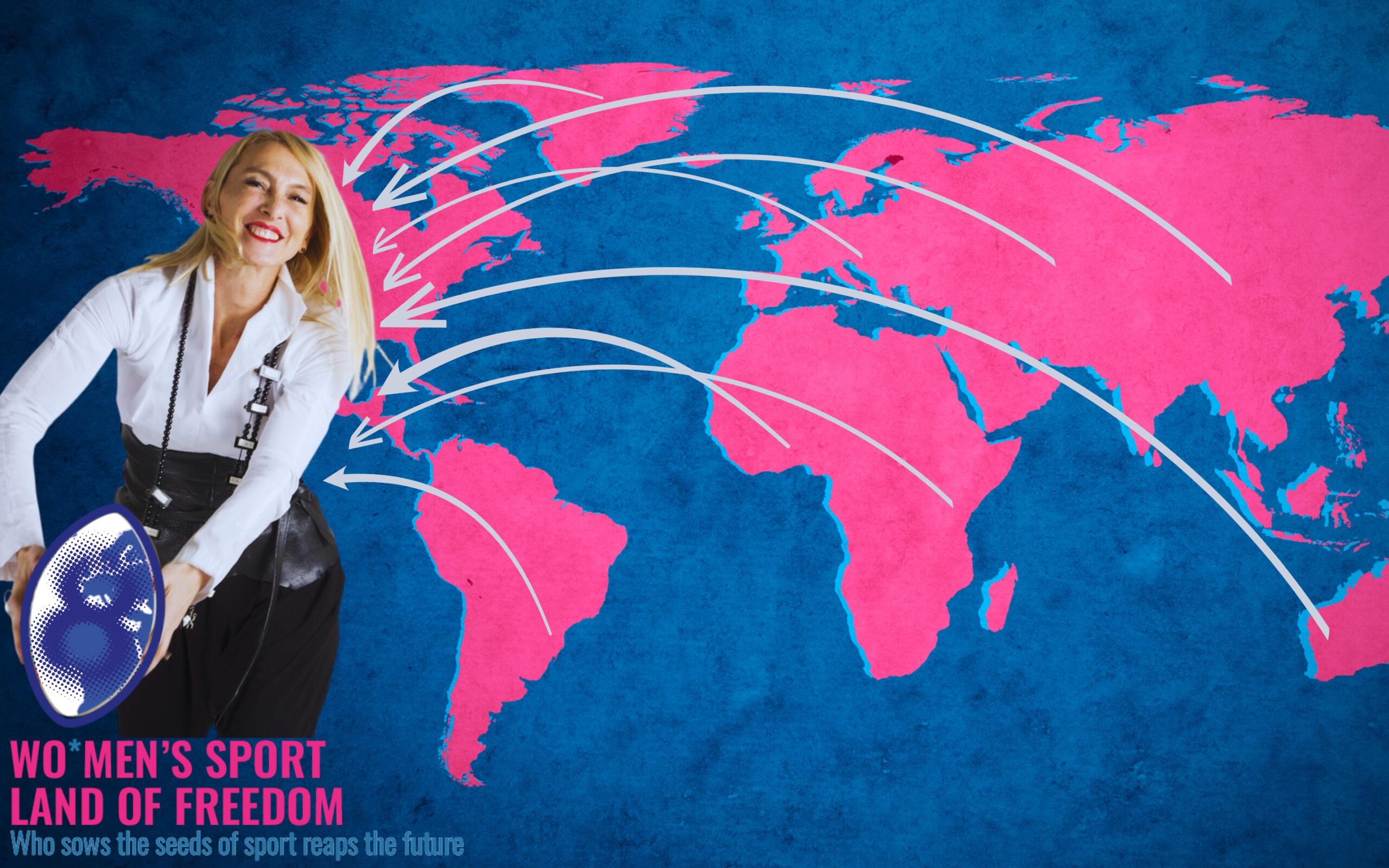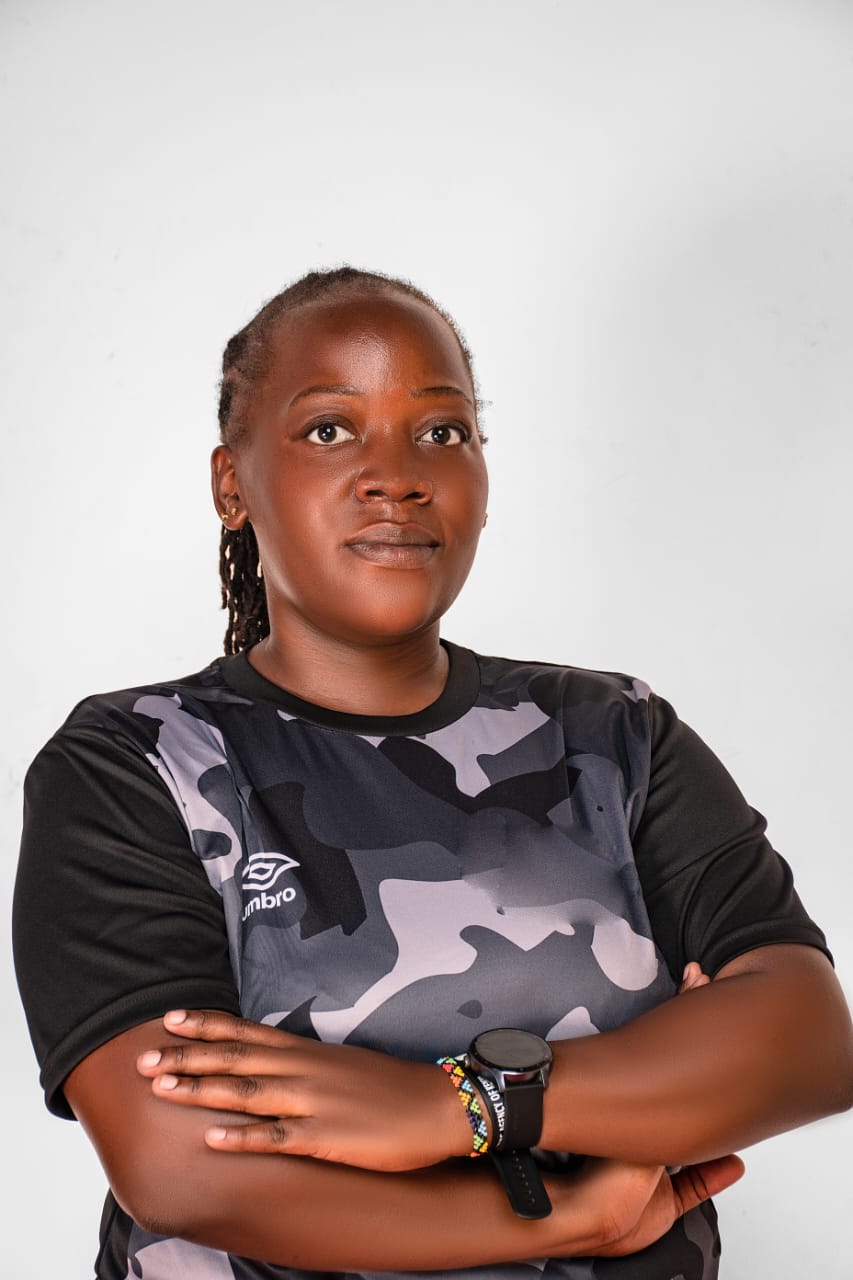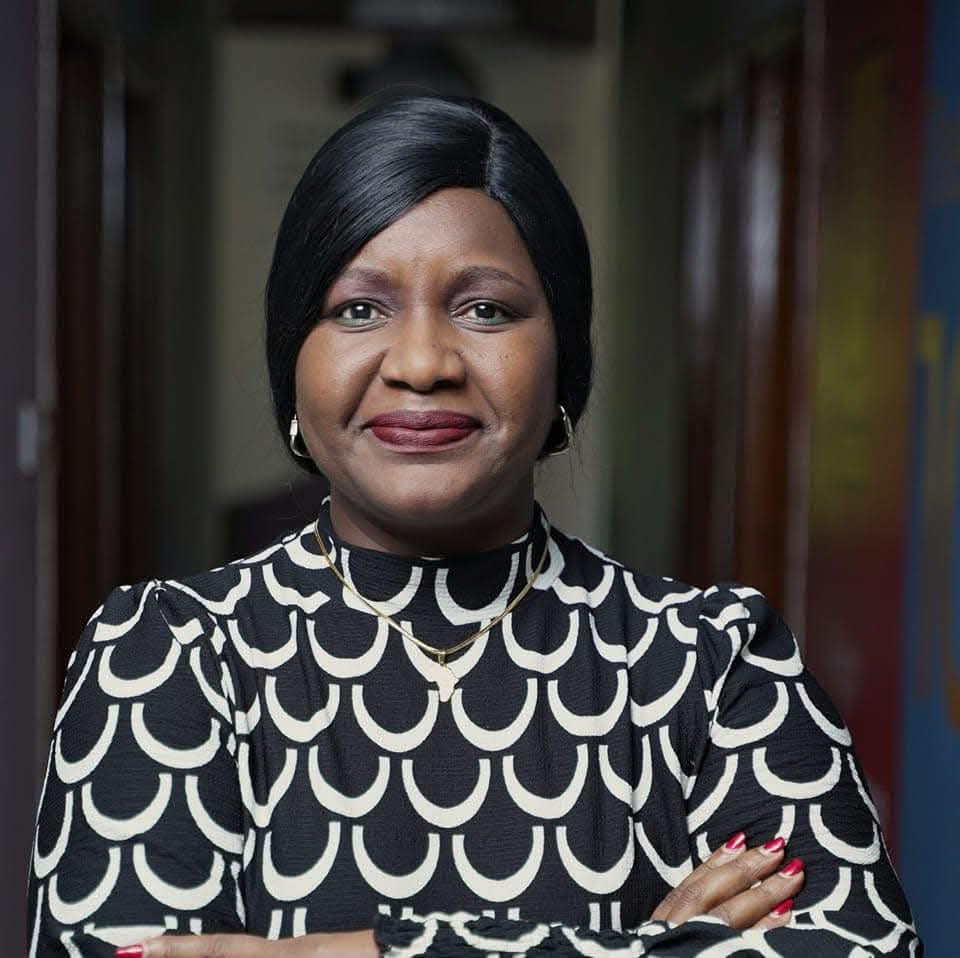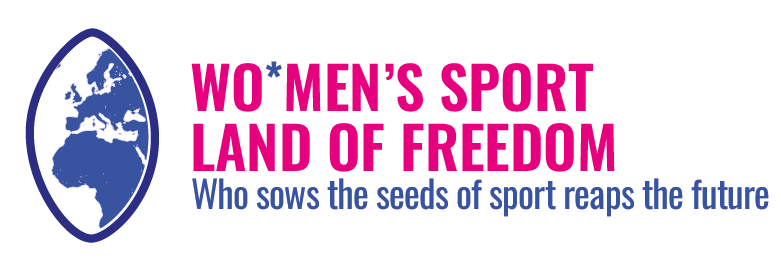
KENYA: NEVER LET THE FEAR OF FAILURE HOLD YOU BACK.
“Never let the fear of failure hold you back.”
Shirly Anindo

Pauline Lanco

Thanks to:
Shirly Anindo
Rugby development officer
Pauline Lanco
Africa’s representative to World Rugby
- The history of the women’s movement in Kenya
- Testimonials
- Reading Time: 8 minutes
KENYA - Find out more
(Source: worldometers.info; data.unwomen.org; Gender Data Portal — World Bank; Wikipedia Demographics of Kenya; Medium – GenderGapAfrica; studies on Kenya parliament gender quotas)
HISTORY OF THE COUNTRY (Shirley Anindo)
1. When did the women’s rugby movement start in your country, and what is its history? How is rugby structured in your country?
The history of women’s rugby in Kenya has been somewhat intermittent. The first signs of the game date back to April 1965, when women from the Impala Club and the Parklands Sports Club came together for a match. According to an article published in the Daily Nation in May of the same year, preparations for this inaugural match were underway. The first official game was played on May 28, 1965, with Impala winning 9-6.
After this initial activity, women’s rugby entered a period of dormancy before being revived in 1969, as indicated by a brochure from a match played on June 19, 1969, which listed the participating players. Another match took place in 1973. Subsequently, women’s rugby activity was limited until 1978, when Mwamba RFC began to develop a team that played a celebratory match against the men’s team in 1980, winning the game. However, even then, the movement stalled once again.
The most recent revival of women’s rugby occurred at Mwamba RFC in the early 2000s, largely due to the efforts of Mwangi Muthee and Pritt Nyandatt, with Sammy Kemei as the women’s team coach. The Kenya Rugby Union organized the Women’s Elgon Cup in 2006, which was played alongside the men’s competition. The Elgon Cup is an annual challenge between Kenya and Uganda in home and away matches.
In 2012, Kenya’s captain, Aberdeen Shikoyi, died on May 29 from an injury sustained during a match against Uganda. Kenya qualified for the 2016 Summer Olympics by winning the 2015 Women’s Africa Cup Sevens. In 2019, despite finishing second in the Africa Women’s Sevens, the Kenyan players qualified for the Tokyo Olympics because South Africa relinquished its spot in the competition.
In 2024, the women’s national team participated in the World Rugby Sevens Challenger Series and finished second in the first leg of the tournament in Dubai. They concluded the series in fifth place overall, missing out on qualification for the new SVNS Play-off promotion and relegation tournament in Madrid. This year, in 2025, the Kenya Lionesses made history by qualifying for the new HSBC SVNS Play-off for promotion to Division Two in Los Angeles.
The Kenya women’s 15s national team first took the field in 2006 and has since represented the country in various tournaments. In 2019, Kenya finished second in the Rugby Africa Women’s Cup, which also served as a World Cup qualification tournament. Despite the loss, the Lionesses advanced to an inter-continental play-off against Colombia, losing by a narrow margin of 15-16 in Nairobi. They also lost in the 2024 World Cup qualifiers hosted in Madagascar.
Currently, they are ranked third in Africa and twenty-third in the World Rugby global rankings. There are currently eight (8) women’s teams. Local leagues exist for women’s rugby sevens, 15s, and youth tournaments for high school age groups.
2. Do you think playing rugby has a social impact for women in your country?
Yes, playing rugby can have a significant social impact for women in Kenya.
Rugby provides opportunities for social interaction and social change (as demonstrated by initiatives like World Rugby’s Pass it Back), leadership development (as captains, coaches, or organizers), and economic growth (through coaching roles, sponsorships, and media visibility).
Although rugby has traditionally been a male-dominated sport, the growth of women’s rugby is challenging gender norms and creating new opportunities. Here are some key social impacts:
Empowerment and Confidence – Rugby helps women develop physical and mental strength, improving their self-esteem in a society where gender roles can be limiting.
Challenging Stereotypes – Women who play a physical sport like rugby break social expectations and promote inclusivity in sports and leadership.
Opportunities and Visibility – Rugby can offer scholarships, access to international competitions, and professional opportunities, increasing the visibility of women in sports.
Community and Support Networks – The rugby community provides social connections, mentorship, and support, which are particularly important for young women facing social or economic challenges.
Health and Well-being – Playing rugby promotes a healthy lifestyle, reducing the risk of disease and improving overall well-being.
Inspiration for New Generations – Players serve as role models for young girls, showing them they can choose any sport or profession.
Despite these benefits, challenges such as limited funding, cultural resistance, and poor media coverage persist. However, thanks to the commitment of the Kenya Rugby Union and initiatives for women’s rugby, the sport continues to grow and generate positive change.
3. In your opinion, what can rugby give to women in your country?
Rugby can offer a great deal to Kenyan women, both on and off the field. Here are the main benefits:
Empowerment and Confidence: Rugby is a tough, physical sport that builds resilience, mental strength, and self-confidence. Women who play it learn to overcome their limits and believe in their abilities, in sports and in life.
Educational and Career Opportunities: Through rugby, the most talented female athletes can get scholarships, both locally and internationally. Some Kenyan players have had the chance to study abroad. The sport also offers career paths in coaching, refereeing, and sports management.
Health and Fitness: Rugby is excellent for overall well-being; it develops strength, stamina, and agility. It also promotes a healthy lifestyle and prevents diseases related to a sedentary lifestyle.
Community and Networking: Being part of a rugby team creates deep bonds and a support network. It offers a sense of belonging, which is important for women facing social challenges.
This sport not only opens up opportunities for leadership and skill development but also promotes strong community involvement. It is truly a source of inspiration for a new generation of athletes across the country. Rugby also represents a clear path to success, and the Kenya Lionesses are powerful role models. Their achievements are extremely motivating and encourage girls to believe in their potential and pursue their goals. Beyond the competitive aspect, rugby develops essential life skills such as resilience, teamwork, and discipline. These qualities contribute significantly to the personal growth and overall well-being of those who play the sport.
JOURNEYS THROUGH RUGBY (Paulina Lanco and Shirley Anindo)
1. When did you start playing rugby and how did you discover its existence?
Paulina: I never played rugby. In 2011, I was co-opted onto the Women’s Rugby Committee of the Kenya Rugby Union. In 2013, I made history as the first woman elected to the Kenya Rugby Union board.
Shirley: I started playing rugby when I was 15 years old in high school. I first saw it on TV with my older cousin, who was a friend of COLLINS INJERA, a famous rugby player in Kenya, when I was 10.
2. What has rugby taught you that has had an impact on your daily life? Can you give me an example of when a rugby mindset has been useful?
Paulina: Rugby builds character. The key mental skills it cultivates—self-control, discipline, decision-making, teamwork, leadership—are invaluable and I apply them daily in my role as a sports leader, particularly in rugby.
Shirley: Rugby teaches lessons that go far beyond the field, and as a woman, the impact is even deeper. Here are some key lessons that have shaped my daily life: Resilience and Mental Strength – Rugby is physically and mentally demanding. Learning to overcome challenges on the field translates into facing life’s obstacles with confidence, whether in the workplace or in personal life. Teamwork and Leadership – Success in rugby is built on trust and support from teammates. This has strengthened my ability to collaborate effectively in professional and personal contexts, valuing diverse perspectives and stepping up to lead when necessary. Breaking Stereotypes – As a woman in a sport traditionally dominated by men, rugby reinforced that strength, determination, and skill have no gender. It gave me the courage to step into spaces where women are underrepresented. Handling Pressure and Adapting – Just like in a game where things change quickly, rugby taught me to stay calm under pressure and adapt to unexpected situations in everyday life. Confidence in My Body and Abilities – Rugby celebrates strength in all its forms. It helped me appreciate what my body can do rather than how it looks, promoting self-confidence and a healthier mindset. Community and Support – Rugby has a strong sense of camaraderie. The friendships and support networks built through the sport remind me of the importance of surrounding myself with people who uplift and challenge me. A rugby mindset – resilience, teamwork, and courage – can be incredibly useful in many aspects of life as a woman. For example, in the workplace: imagine being in a meeting where your ideas are ignored or dismissed. Instead of backing down, you channel your rugby mindset: hold your ground, communicate with confidence, and stand by your ideas firmly – just like you would in a scrum when defending your position or making a key decision. Another example is dealing with setbacks. Rugby teaches you to be knocked down and get back up – literally and metaphorically. Whether it’s facing rejection, personal challenges, or unexpected obstacles, that mental strength helps you push forward, adapt, and keep moving.
3. Can you give me 3 words that connect rugby with freedom?
Paulina: Unity – Inclusivity – Challenge/Resistance. South Africa’s story of overcoming racial barriers and promoting unity is a testament to these principles. Rugby embodies inclusivity and a spirit of challenging entrenched norms.
Shirley: Here are three words that connect rugby with freedom:
Expression – Rugby allows players to express themselves physically, strategically, and emotionally, embodying the spirit of freedom on the field.
Resilience – The game promotes perseverance and overcoming challenges, just like the struggle for freedom in different aspects of life.
Unity – Rugby brings together people from diverse cultures and backgrounds, promoting a sense of collective freedom and shared identity.
4. What does living in a land of freedom mean to you?
Paulina: It means freedom of choice, freedom of movement, freedom from oppression, and equality before the law.
Shirley: Living in a land of freedom means having the ability to make choices about my life without fear of oppression or undue restrictions. It means being able to express openly my thoughts, beliefs, and creativity, without censorship or persecution. It’s about having rights and responsibilities that guarantee fairness, justice, and opportunities for everyone, regardless of background. Freedom also carries the duty to respect the rights of others, engage in meaningful dialogue, and contribute to a society where everyone is valued. It’s not just about personal liberties, but also about collective well-being, ensuring that freedom is protected and accessible to all, not just a privileged few.
5. Which object represents you and why? What is a quote that guides your life?
Paulina: A car. For me, a car symbolizes control over movement, independence, personal freedom, social mobility, progress, and even a sense of adventure and rebellion.
Two quotes resonate most: “To be clear is to be kind.” and “Never let the fear of failure hold you back.”
Shirley: If I had to choose an object to represent me as a woman, I would say a mirror. A mirror reflects the world clearly, adapts to different perspectives, and helps people see themselves more clearly. Like a mirror, I aim to reflect thoughts, emotions, and knowledge to those seeking understanding, offering insights that help them grow. The quote that resonates with me is:
“Do the best you can until you know better. Then when you know better, do better.” – Maya Angelou. It’s a reminder that growth is a continuous process and that mistakes are just steps toward improvement.
RUGBY EMPOWERMENT FOR LIFE – WE ARE THE STORY
PROGETTI
SEGUICI SU
If you want to go fast, go alone. If you want to go far, go together.
African proverb
Sport land of freedom è un progetto di Erika Morri | © 2024 Tutti i diritti riservati | Privacy Policy
